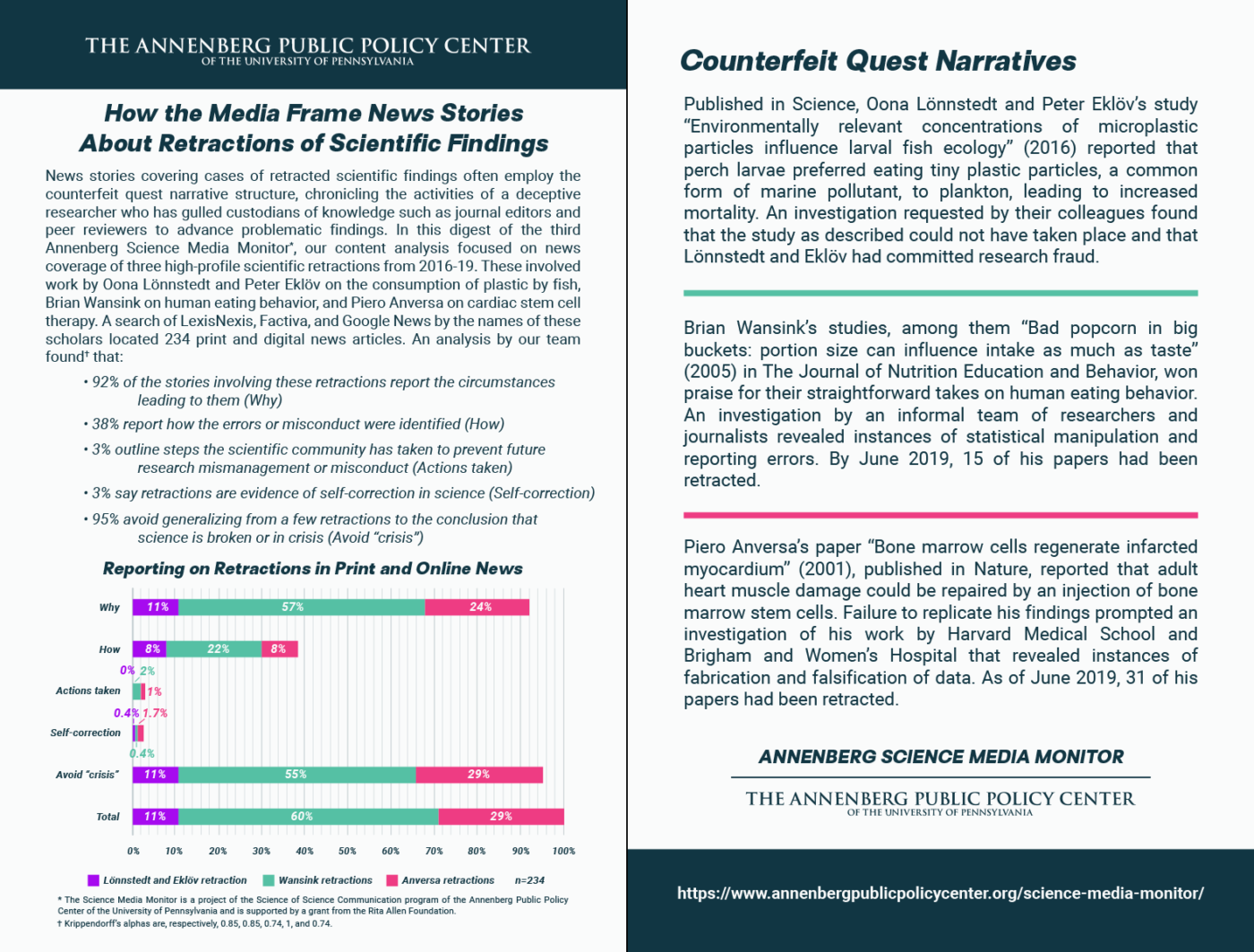An update to the Annenberg Science Media Monitor’s report on media coverage of retractions of scientific findings found that fewer than 4 in 10 articles reported on how the errors or misconduct occurred, and just three percent said retractions were evidence of self-correction in science.
The content analysis focused on news coverage of three high-profile scientific retractions from 2016-19. These involved work by Oona Lönnstedt and Peter Eklöv on the consumption of plastic by fish, Brian Wansink on human eating behavior, and Piero Anversa on cardiac stem cell therapy. A search of LexisNexis, Factiva and Google News by the names of those scholars produced 234 print and digital articles.
The analysis found that:
- 92% of the stories involving these retractions report the circumstances leading to them (why they occurred);
- 38% report how the errors or misconduct were identified;
- 3% outline the steps the scientific community has taken to prevent future research mismanagement or misconduct (what were the actions taken);
- 3% say retractions are evidence of self-correction in science;
- 95% avoid generalizing from a few retractions to the conclusion that science is broken or in crisis (avoid “crisis”).

News stories about all three of the retractions used the counterfeit quest narrative structure, which chronicles the activities of a deceptive researcher who has fooled the custodians of knowledge such as journal editors and peer reviewers to advance problematic findings.

This update was completed in August 2019. The original Science Media Monitor No. 3 on retractions of scientific findings did not include an analysis of news coverage of the study involving fish and microplastics.
Other reports from the Annenberg Science Media Monitor include:
- How Well Do Major Media Outlets Cover The Process Of Scientific Discovery?
- Media Framing of News Stories About the Ethics, Benefits, and Risks of CRISPR
- Crisis and Self-Correction in Science
The Annenberg Science Media Monitor is supported by a grant from the Rita Allen Foundation.
The reports are available at www.annenbergpublicpolicycenter.org/science-media-monitor/.

